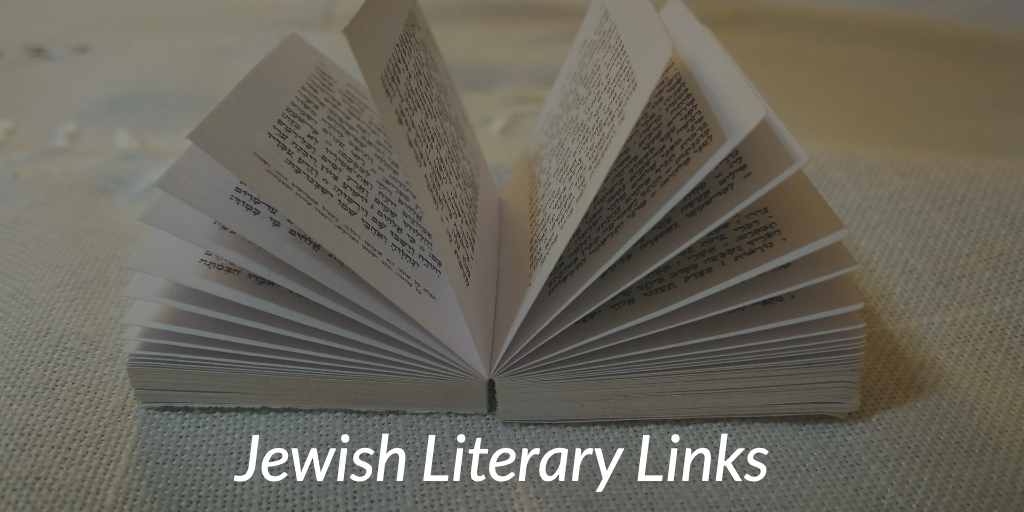Jewish Literary Links

Toward the end of each week, the My Machberet blog presents a collection of links, drawn primarily from the world of Jewish books and writing.
(more…)
Toward the end of each week, the My Machberet blog presents a collection of links, drawn primarily from the world of Jewish books and writing.
(more…)
Toward the end of each week, the My Machberet blog presents a collection of links, drawn primarily from the world of Jewish books and writing.
Updated this week: both “After October 7: Readings, Recordings, and More” and “Writers, Beware.”
Shabbat shalom.

Toward the end of each week, the My Machberet blog presents a collection of links, drawn primarily from the world of Jewish books and writing.
Settle in, everyone. There’s a lot to share here this week.
(more…)
Toward the end of each week, the My Machberet blog presents a collection of links, drawn primarily from the world of Jewish books and writing.
(more…)
The My Machberet blog is proud to serve as this month’s host for the Jewish Book Carnival, a monthly event where those who cover Jewish books online “can meet, read, and comment on each others’ posts.” Organized by the Association of Jewish Libraries (AJL), the Carnival travels around and is hosted on a different participant’s site on the 15th of each month.
(more…)